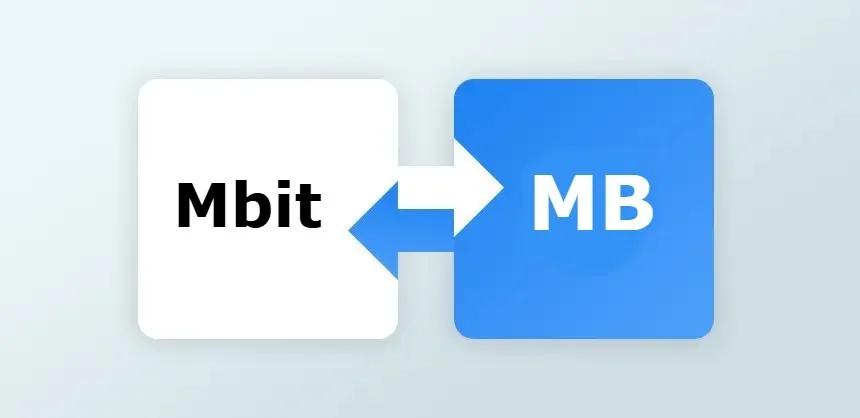Megabits to Megabytes Converter - Simplify Network Speed & Data Conversion
Convert between megabits per second (Mbps) and megabytes (MB) for internet speeds, downloads, and data transfer calculations. Understand real-world implications for streaming, gaming, and file transfers.
Enter the number of megabits (Mbit) to convert
Conversion Results
Enter value in megabits to see conversion results
Related & Other Popular Converters
Understanding how to convert megabits to megabytes is necessary for accurately measuring things like internet speed, file transfers, and download time. Whether you are trying to compare broadband plans or simply trying to figure out how long a 4K movie will take to download, our Mbit to MB Converter will help you do this quickly, easily and accurately.
Measuring in megabits to megabytes will show how much data can move across your network connection. Internet providers use megabits (Mbit) to measure speed, and we typically think about files in megabytes (MB). This conversion will help connect those measurements to reality.

What is a Megabit (Mbit)?
A megabit (Mbit) is a unit of digital data that be quantified as 1,000,000 bits. This as usually used to measure speed. For example, 100 Mbps means that you can theoretically transfer 100 megabits per second over your connection.
What is a Megabyte (MB)?
A megabyte (MB) is a unit of measurement that is quantified as 8 megabits (Mbit) or 1,048,576 bytes (in binary numbers). Megabytes are generally used to quantify file sizes like videos, apps, or documents.
Formula to Convert Megabits to Megabytes
The simple conversion formula for megabits to megabytes is:
1 Megabit (Mbit) = 0.125 Megabytes (MB)
or
Megabytes = Megabits ÷ 8
For example,
100 Mbit ÷ 8 = 12.5 MB
That means a 100 Mbps internet connection can theoretically download 12.5 megabytes of data per second.
Use our Mbit to MB Converter
Using our online Mbit to MB Converter, you can calculate a conversion easily and accurately. Simply type in the number of megabits (Mbit) and see the results in megabytes (MB) instantly. The converter also provides additional units such as gigabytes, kilobytes, bytes, and bits, allowing you to compare data more effectively.
This tool is helpful for:
Common Conversion Examples
| Megabits (Mbit) | Megabytes (MB) |
|---|---|
| 10 Mbit | 1.25 MB |
| 25 Mbit | 3.125 MB |
| 50 Mbit | 6.25 MB |
| 100 Mbit | 12.5 MB |
| 1000 Mbit | 125 MB |
Why Convert Megabits to Megabytes?
Most people are confused or even frustrated when they see internet speeds advertised as a megabit per second (Mbps), while files and downloads are expressed in megabytes (MB). The Mbit to MB converter will help you understand the difference so you know exactly how much data your internet connection is capable of and how long it will take to download the material.
For example:
A 100 Mbps internet plan = 12.5 MB/s download speed → therefore you will be able to download a 1 GB file in approximately 80 seconds.
It is important to understand the difference between megabits and megabytes, so you can understand the speeds of your network and the size of the files in the world of technology. As mentioned, use our Mbit to MB Converter for a reliable tool to calculate conversions instantly and make smarter decisions about using the internet, downloads, and your data.
FAQs
The answer is 0.125 megabytes in one megabit or divide the number of megabits by 8 to get to megabytes.
Internet service providers use Mbps (megabits per second) number because it is a larger and more sellable number than MB (megabytes, which provides a measurement for file transfers).
Use this formula: Megabytes = Megabits ÷ 8 Example: 80 Mbit ÷ 8 = 10 MB
Mbit (megabit) measures data transfer speed, while MB (megabyte) measures file size or storage size. 1 MB = 8 Mbit.
Yes, 100 Mbit/s (12.5 MB/s) is fast enough for HD quality streaming, gaming, video conferencing, or using multiple devices at the same time.
Our Mbit to MB converter is based on the binary standard (1 MB = 1,048,576 bytes) so you should get accurate results for technical usage, education and everyday purposes.